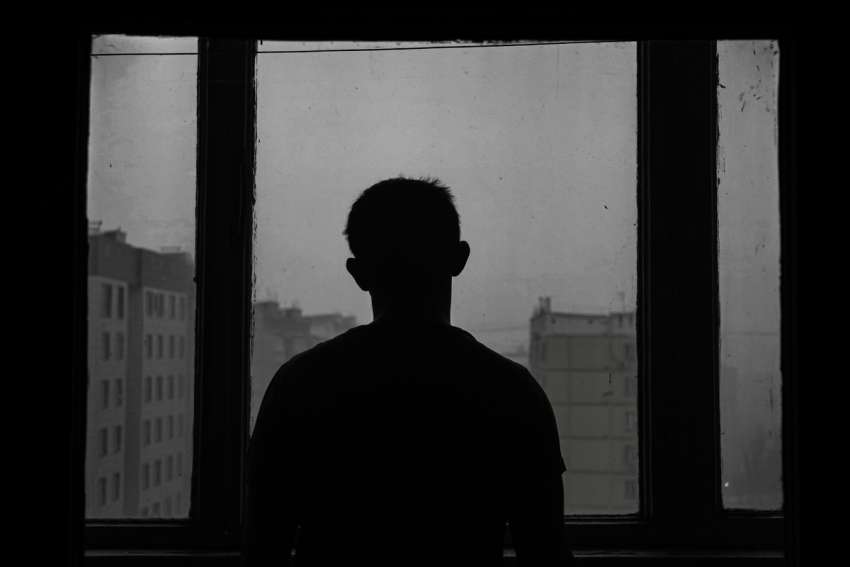Kinsella, a consecrated virgin of the Archdiocese of Toronto, was the featured speaker at a Feb. 21 webinar on the topic of redemptive suffering hosted by the Canadian Catholic Bioethics Institute (CCBI).
The former director of campus ministry at the Newman Centre, University of Toronto, hosts a podcast, In the Thicket, that explores themes of suffering and grace, and is the author of the soon-to-be published book Understanding and Living Redemptive Suffering.
Kinsella told The Catholic Register that the idea for the webinar developed out of a conversation with Dr. Moira McQueen, executive director of CCBI, about the Horizons of Hope program. The Canadian bishops’ program on end-of-life and palliative care was introduced to Canadian parishes in 2023.
“I had noticed there are a lot of Catholics who are unclear about what redemptive suffering actually is, and because I believe it is so integral to the conversation around death, dying and MAiD (medical assistance in dying) in particular, I was just chatting with Moira about how it is addressed in Horizons of Hope.”
In her years working in youth ministry, Kinsella had recognized a societal trend towards a “culture of comfort.”
“This culture of comfort and culture of immediacy is present in our Western culture more than it has ever been. I don’t want to read things with a revisionist lens, but I do think that for most of history it was just taken that hardship was part of life, even for people who had a lot of wealth and influence.”
Kinsella thinks the normalization of comfort as the expected baseline of modern life has spilled over into the Church.
“I think it has really affected all of us, we have this aversion to suffering, which is natural because suffering is an encounter with evil. It’s a natural thing that we recoil from it,” she said. “But then we are turning essentially from this centrality of the Cross in our faith.”
It was a 2018 diagnosis of fibromyalgia following two years of debilitating pain and fatigue that forced Kinsella to confront suffering in a much more personal way.
“I ended up having to move back from Toronto to Ottawa to live with family. So, it was a big transition of going from my own apartment, my community of consecrated virgins, my career, finances and all those kinds of things to like, okay, so now I go back, homeless to my parents?”
Her own encounter with suffering has meant both an embrace of the rich Catholic tradition of redemptive suffering and an ability to speak to others suffering with genuine sympathy and authenticity. This is what Kinsella refers to as “her ministry within a ministry.” She notes that both her baptism and the day of her consecration to the Order of Virgins took place on Sept. 14, Feast of the Exaltation of the Holy Cross.
In the Feb. 21 presentation, Kinsella introduced the idea of redemptive suffering and explored its relation to end-of-life issues.
“We talked about the personalistic norm of John Paul II and how the Lord has a plan for each of our sufferings. It’s not just that everybody suffers in general, and it goes into a big pot. The Lord sees us in our individual suffering, and He has a plan for our sufferings and for our cross.
“I also spoke of how learning to suffer well is more of a journey as opposed to a destination. It’s not just about getting to the other side of the pain. I used the quote from John of the Cross where he talks about the ‘thicket of suffering.’ How we desire to get into that thicket because it contains the wisdom and riches of God.”
Kinsella spoke about the “suffering body,” in the economy of God’s grace, still having the ability to participate and contribute to the common good. This was especially for those who “look at MAiD and choose it because they feel like a burden or because they feel like they’re not contributing members of society anymore.”
“Even for people who are in comas or people who have severe developmental delays or things like that, for every suffering body, it applies, that body can still be a gift to others because simply the presence of that body draws out something from the person who responds to them. If I’m responding to somebody who is ill or sick, because of their presence, they’re drawing out from me my own meaning, what I was created to do, which is to be given, poured out in love and gift to another, and to receive that.”


